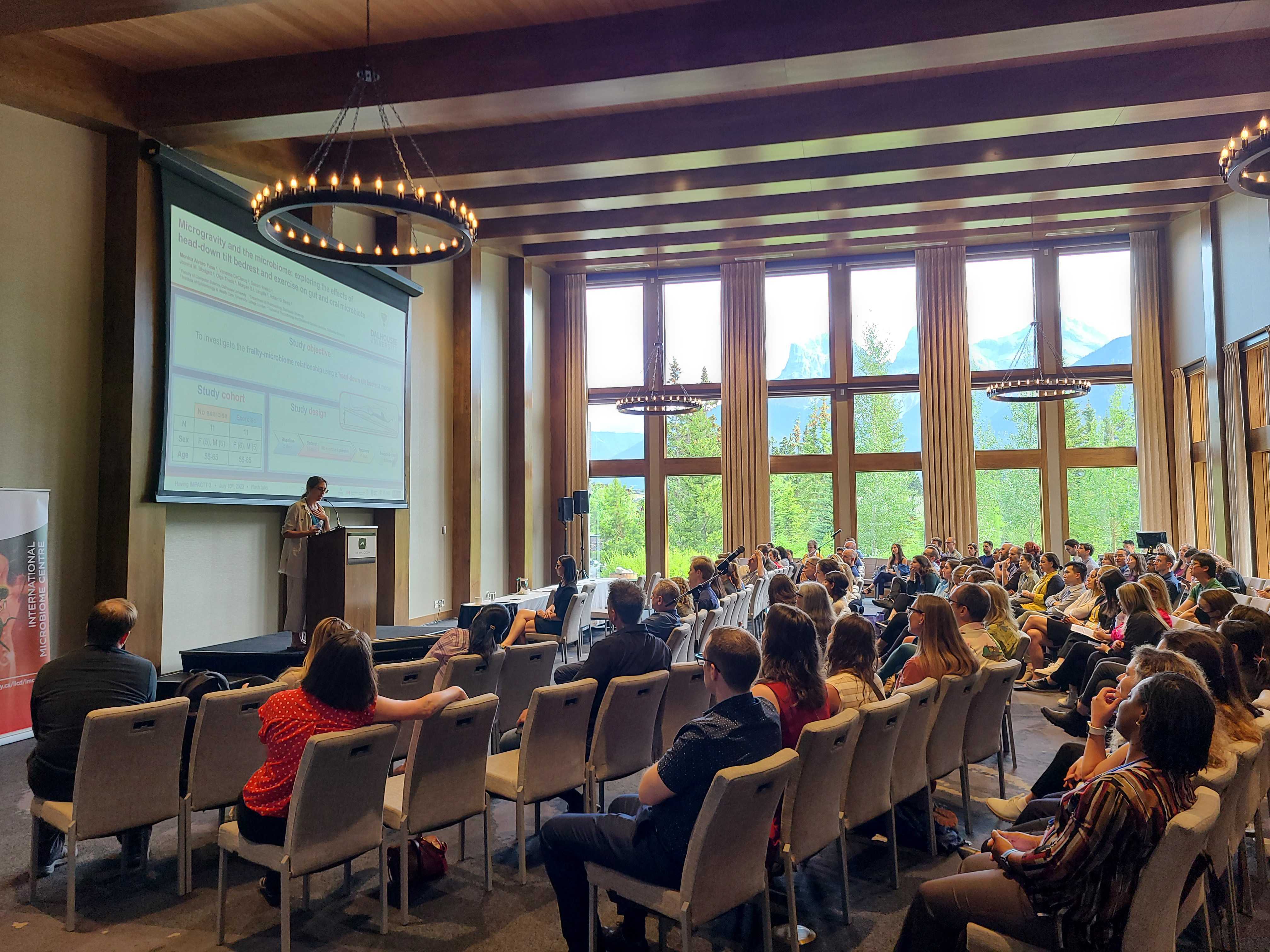
IMPACTT 3 Symposium
We were honored to sponsor and to attend the Having IMPACTT 3: Advancing Microbiome Research Symposium from July 10th to 12th, 2023 held at the Malcolm Hotel in Canmore, Alberta. Organized by the Integrated Microbiome Platforms for Advancing Causation Testing and Translation (IMPACTT) and the International Microbiome Centre at the University of Calgary (IMC), the sold out symposium brought together leading minds and highlighted the latest findings and discoveries from microbiome research teams across Canada and around the world. Hats off to Kathy McCoy for her leadership and Sydney Morgan for her amazing organizational ability – this is a must attend conference if you are interested in microbiome science.
During the event, a number of world-class speakers gave talks on different aspects of gut microbiome research (speaker profiles). Here’s a list of some of the talks we liked, in no particular order.
Cecilia Noeker gave a talk on metabolic modeling. She reminded that 90% of gut microbes can be classified, providing comprehensive information on the diversity within the gut ecosystem. However, only 10% of fecal metabolites have identified features, indicating the unknown complexity of gut metabolism. Notably, 25% of the identified metabolites can be linked to enzymatic reactions, shedding light on the biochemical processes occurring in the gut. Cecilia also introduced MIMOSA2, a tool for metabolomics that predicts taxon-level and community-level metabolic potential.
Sean Gibbons delved into gut microbial metabolism in aging. His research shows that over 40% of identified blood metabolites are associated with the gut microbiome, highlighting the significant impact of gut microorganisms on systemic metabolism. Notably, the aging gut exhibited an enrichment of Prevotella and Bacteroides, providing insights into how the gut microbiome changes with age. Centenarians show an enrichment in protein fermentation, possibly involving indoles, raising questions about its role in healthy aging. Gibbons suggested that mucus degradation might be involved in gut microbial metabolism, uncovering potentially crucial processes in gut health.
Alain Stintzi's presentation on the complexity of the gut virome offered valuable insights into viral interactions within the gut. Fecal Microbiota Transplantation (FMT) success was found to correlate with the content of bacteriophages in the donor, showcasing the impact of viral transfer on gut health. In Inflammatory Bowel Disease (IBD) patients, viral particles were associated with inflammation, suggesting the virome's potential involvement in disease pathology. Stintzi discovered that the virome exhibited less transcriptional activity compared to the bacteriome, adding to our understanding of the dynamics between these gut components. Two virus classes, Caudoviricetes and Malgrandaviricetes, demonstrated variations in IBD, emphasizing their potential role in disease progression. Additionally, he revealed a positive association between the virome and bacteriome in IBD, underlining their interconnectedness in disease. A decrease in the abundance of mucosal crAssphage in IBD hinted at specific viral contributions to gut health.
A nice highlight of the event was when Jens Walter expressed his delight at discussing something "real" instead of his recent paper on the fetal "microbiome" published in Nature. This lighthearted moment added an element of camaraderie among the researchers, fostering a collaborative and enthusiastic atmosphere throughout the event.
Apart from the talks, the poster session, which covered diverse topics in gut microbiome research and bioinformatics, was uniformly good, providing a rich platform for sharing cutting-edge ideas. Our Head of Bioinformatics, Dr. Pedro Dimitriu presented a poster on, "Exploring Multi-Omics integration for characterising microbial based products used in Biotech Applications."
We can’t wait to attend the conference next year.
Share this article
-
Share on Facebook
Share on Facebook
-
Share on Twitter
Share on Twitter
-
Share on WhatsApp
Share on WhatsApp
-
Share on LinkedIn
Share on LinkedIn
-
Share on Reddit
Share on Reddit
-
Share by Mail
Share by Mail
About Microbiome Insights
Microbiome Insights, Inc. is a global leader providing end-to-end microbiome sequencing and comprehensive bioinformatic analysis...
